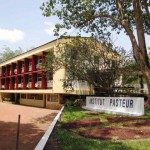Lien DOI – 10.1007/s00038-020-01338-x
Objectives
The Central African Republic (CAR), a site of recurrent disease emergence, developed a noteworthy epidemiological surveillance system from the colonial period, but its health measures have remained among the world’s lowest. To understand this disparity between surveillance and public health, we examined selected moments in its history of surveillance and changing relations with public health structures.
Methods
We conducted archival research in CAR and French archives and 18 semi-structured interviews with key researchers working in CAR.
Results
We find long-term continuities in privileging surveillance over the health system and population health, making the CAR a “hotspot” for emerging diseases and a “blind spot” of primary health care. From the colonial period, the country attracted considerable support for surveillance, without concomitant investment in public health system. Political disputes and financial constraints have obscured real primary care needs on the ground.
Conclusions
As both a hotspot and a blind spot for global health, the CAR signals the need to reorient health interventions to address the long-term health of Central African people


